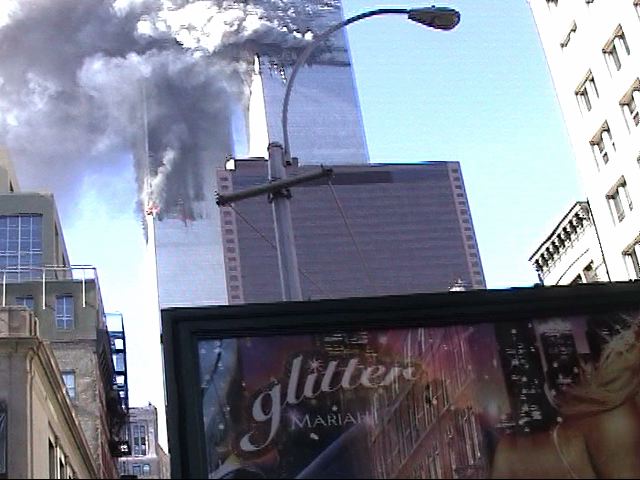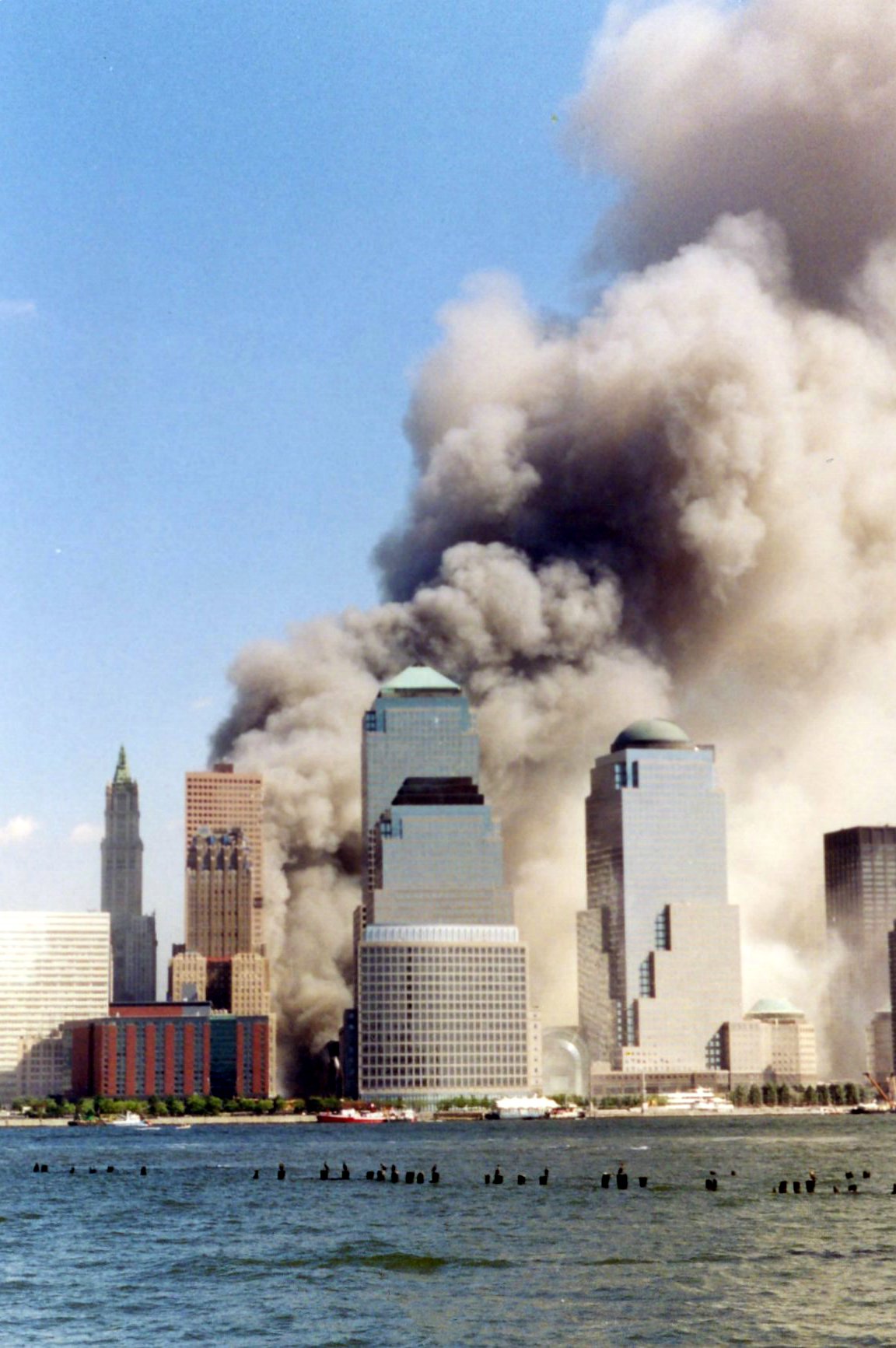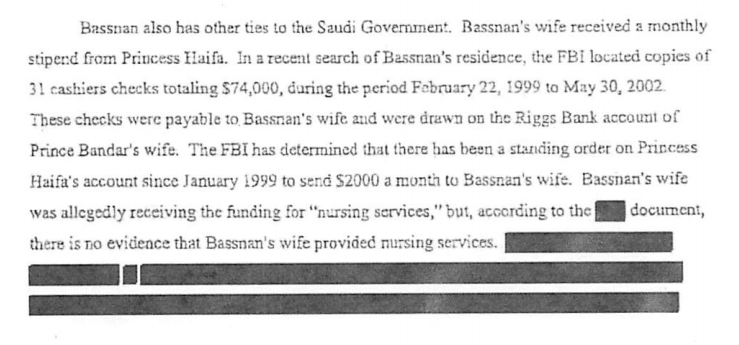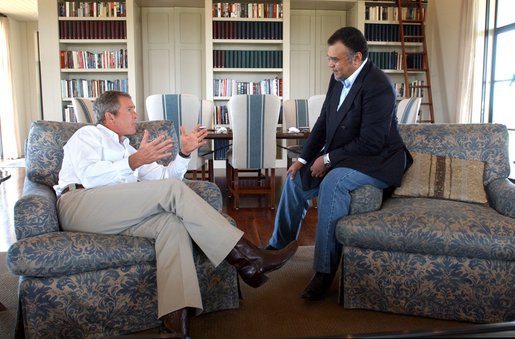3 Things to Know About the New Information on 9/11 and Saudi Arabia

By:
The formerly secret 28 pages about 9/11 and Saudi Arabia are now public, and they may invite more questions. The controversial pages came from a congressional inquiry into the 2001 terror attacks in New York City and Washington, D.C., that killed nearly 3,000 people.
 National Institute of Standards and Technology/Wikimedia Commons - wikimedia.org
National Institute of Standards and Technology/Wikimedia Commons - wikimedia.org
Advocates and families of the victims have been calling for the pages to be released since they were classified 13 years ago.
Critics of the U.S. government say it hid the Saudi government's involvement in 9/11.
"What's clear is the Bush administration was trying to protect the Saudi government from embarrassment and from scrutiny," Brian McGlinchey, director of watchdog group 28pages.org, told ATTN:. He's been a longtime advocate for the pages' release.
 Wally Gobetz/Wikimedia Commons - wikimedia.org
Wally Gobetz/Wikimedia Commons - wikimedia.org
However, the 9/11 Commission, which had access to the 28 classified pages from the congressional inquiry, said in its 2004 report that it didn't find any conclusive evidence that senior Saudi officials were involved.
"We have found no evidence that the Saudi government as an institution or senior Saudi officials individually funded the organization,” said the report.
ATTN: sifted through the document. Here are three things from the declassified 28 pages you should know:
1. A former ambassador and Saudi prince gave money to suspected terrorists.
Saudi Prince Bandar bin Sultan was an ambassador for Saudi Arabia to the U.S. from 1981 to 2005. There is a clear statement from the U.S. government that Prince Bandar directly gave $15,000 to suspected terrorist Osama Bassnan in 1998. Bassnan was living in California across the street from two of the hijackers and helped them financially, according to the newly released 28 pages. Prince Bandar also gave money to Bassnan's wife. "We have our first indications that some money actually flowed directly from Bandar to Bassnan," McGlinchey said.
 House Intelligence Committee - house.gov
House Intelligence Committee - house.gov
Although Princess Haifa, Prince Bandar's wife, allegedly gave Bassnan's wife $2,000 a month for nursing services, the FBI found "there is no evidence that Bassnan's wife provided nursing services." After a search of Bassnan's house in the U.S., the FBI found copies of checks totaling $74,000 dated from 1999 to 2002.
 House Intelligence Committee - house.gov
House Intelligence Committee - house.gov
President George W. Bush, who was in office during 9/11 and when the report was created, had a friendly relationship with Prince Bandar.
 Wikimedia Commons - wikimedia.org
Wikimedia Commons - wikimedia.org
2. Osama bin Ladin and the Saudi royal family shared a pilot.
In what the documents call a "more tenuous" connection between Saudi government employees and terrorists, a pilot who worked for the royal family also was a pilot for bin Ladin. The pilot, Fahad Abdullah Saleh Bakala, was close friends with two of the 9/11 hijackers and flew bin Ladin back and forth from Saudi Arabia and Afghanistan.
 House Intelligence Committee - house.gov
House Intelligence Committee - house.gov
3. The Saudi government has a history of stonewalling the United States.
When asked how 9/11 could have been prevented, an unnamed New York City FBI agent said the Saudi government could have helped with previous investigations but instead chose to be "useless and obsructionist."
In May of 2001, U.S. officials asked the Saudi government to locate a suspected terrorist they believed knew of an upcoming Al Qaeda operation. Saudi government officials refused to look for the man until a U.S. intelligence agency told them more about the origins of the information. The U.S. refused, and the Saudis didn't find the man.
In 1996, U.S. authorities said that the Saudi government "would not cooperate with the United States on matters related to Osama bin Ladin" because he knew too much about the relationship Saudi Arabia had with terror groups in the 1980s.
 House Intelligence Committee - house.gov
House Intelligence Committee - house.gov
CIA Director John Brennan said in May that the questionable implications in the 28 pages were investigated by the 9/11 Commission.
"I think the 9/11 commission took that joint inquiry and those 28 pages or so and followed through on the investigation," he said, according to ABC News. "And they came out with a very clear judgment that there was no evidence that indicated that the Saudi government as an institution, or Saudi officials individually, had provided financial support to Al Qaeda."
However, McGlinchey believes there are many potential connections in the 28 pages, and the public shouldn't assume the 9/11 Commission investigated them properly.
"The bottom line is it's not true that these were aggressively pursued because people didn't want these leads aggressively pursued," he said. "You know the relationship between the United States and Saudi Arabia was put ahead of the cause of justice."
He said in order to protect the U.S. relationship with Saudi Arabia, the 9/11 Commission didn't conduct a thorough investigation, even though Saudi officials have made statements encouraging the release of the documents.
"We've been saying since 2003 that the pages should be released," Nail Al-Jubeir, director of communications for the Saudi embassy, told CNN. "They will show everyone that there is no there, there."
But McGlinchey said the supposed transparency was a political move.
"More recently, they've only resumed saying they [the documents] should come out over these past few months when I think it became apparent that they were going to come out," he said. "It's kind of a calculated public relations technique to make sure they were on the right side of public opinion or the right side of this issue."
